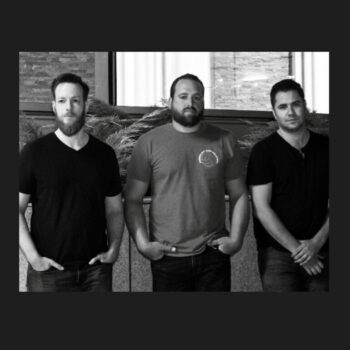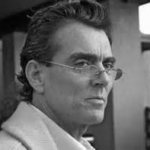Chicago-based art-rock/prog-rock outfit Grey Fields recently released their album, Vesna, a 10-track collection of songs emanating dream-like flavours of avant-garde prog-rock.
Grey Fields explain the album “revolves around the concept of cycles. It’s moody and filled with existential questions, sort of similar to a band like Radiohead.”
Made up of Alex Dzamtovski (vocals, guitar, keys), Adam Repp (bass, vocals), and John Polischuk (drums), Grey Fields formed in 2016, releasing their self-titled album in 2017, followed by an EP, Sometimes the Dark Outweighs the Wonder, in 2019.
Describing their unique sound, the band says, “It combines elements of folk and rock but often fuses that with classical music in terms of structure and instrumentation.” At once imminent and transcendental, Grey Fields’ music blends gliding symphonic filaments with hints of ambitious art-rock and the elusive fluency of prog-rock.
XS Noize spoke with Grey Fields to find out more about the inspiration for Vesna, their gear, how they got started in music, and their writing process.
What’s the story behind the name Grey Fields?
Alex: I’ve always liked essentially meaningless band names, like Smashing Pumpkins or Radiohead. It was just a name that we thought sounded unique. The name feels a little dark and moody, so it aligned with our music.
What inspired your new album, Vesna, and what’s the significance of the title Vesna?
Alex: I’ve always wanted to combine my love for classical with rock, and this album is our attempt to combine the two into hopefully something that people will appreciate. John came up with the title Vesna. Vesna was a mythological female character associated with youth and springtime in early Slavic mythology, particularly within Croatia, Serbia, North Macedonia, and Slovenia. I was born in Macedonia, and the album revolves around broad themes of cycles, so it felt like a perfect fit.
Alex, what kind of guitar do you play, and why? Can you talk about your style?
Alex: I only play acoustic guitar these days. There’s no electric guitar on Vesna. The brand doesn’t matter much to me. I’m terrible at lead guitar but also have very little interest in guitar solos. I stick to mostly guitar picking and strumming.
Adam, what kind of bass guitar do you play, and why? Can you talk about your style?
Adam: I play a Fender American Elite Jazz Bass (4-string) probably because it’s the first bass style I ever owned, and I’m loyal like that. There’s something about its versatility and tone that I really like. Also, I play with my fingers, so those pickups offer a nice cosy little perch to rest my thumb on.
My style is some mishmash of ‘90s alternative players meets funk/fusion.
John, what kind of drums and cymbals do you play? Can you talk about your style?
John: I play a Pearl set, and I think my cymbals are a combination of Paiste and Zildjian. The lettering came off over a decade ago. I learned how to drum playing to Smashing Pumpkins albums but ended up sounding nothing like Jimmy Chamberlin. I try to play to fill out and elevate a song. With Alex and Adam playing, I can mostly sit in a pocket and play. I try to keep my drum sound full, with minimal fills. Our album is obviously fuller, but at practice, we are a three-piece. As a three-piece, you get disciplined to play as larger than you are. Cause of this, I seldom lay off the cymbals, even when adding a fill. When it’s just three of you, laying off a steady snare hit or cymbals just feels like the song drops out to me.
What got you into music?
Adam: I have an older brother who’s a great guitarist. Growing up, he always wanted me to sing or play bass, but I was just a little kid and couldn’t really pull off the James Hetfield growl pre-puberty (or post-puberty for that matter). So, I never played an instrument. Then one–night, Senior year of high school, I had this dream that I was thumping on the bass, and everyone was dancing around me. I didn’t know anything about the instrument and couldn’t even pick out the bass on a recording, but I loved the thought of playing something that could move people like that. I told a friend about my dream the next day and he just so happened to be selling a (wait for it…) Fender Jazz Bass and practice amp for only $90. I was hooked from the moment I plugged in and felt that low-E rumble.
Alex: I’m not sure what exactly got me interested in music. It’s always been an essential part of my life for as long as I can think back. There was a moment that was a game changer for me. I was a freshman in high school and had a friend who just started playing guitar and was in a band. They asked me to join as a vocalist but instantly wanted to learn guitar. I persuaded my parents to buy me one and I was hooked. After school I would just lock myself in my room, playing guitar endlessly until it was time to go to bed. That was my routine and everything else in my young life went out the window. I started writing songs as soon as I figured out chords and haven’t stopped since.
Which musicians influenced you the most?
Adam: Early on, I really gravitated toward the lead-style bass players because it was easier for my untrained ears to tell their playing apart from the other guitars. I’m all about doing the job of the bass player (marrying rhythm and harmony, nodding my head to the groove with a face void of emotion, etc.), but I absolutely love when a player does that and adds a few sprinkles on top.
Those players like John Entwistle and John Paul Jones. Such killer lines. “Ramble On” is like bass poetry and probably ear-wormed into my subconscious at an early stage in my playing. Paul McCartney is so wonderfully melodic in his phrasing. Flea introduced me to playing the bass percussively. And I can’t get enough of the virtuoso players like Stu Hamm, Stanley Clarke, and Victor Wooten. They really showed me what was possible (yet unachievable by mere mortals) on the instrument.
Alex: Early on when I started in the ‘90s, it was popular alternative acts like Nirvana, Smashing Pumpkins, and Radiohead. A little after college was when I started to appreciate more fringe artists and styles like contemporary classical, baroque pop and whatever else that went against the grain in an engaging way.
You’re based in Chicago. What’s the music scene like in Chicago?
Alex: Bouncing back, I suppose. There are great venues here but there’s not much of a scene since the pandemic hit. Although I have no idea really. I’m out of the loop.
Which artists in your opinion are killing it right now?
Adam: I’ve been a big fan of Portugal. The Man for years. I saw them pretty early on at a coffee shop in a college town, so it’s pretty cool to see them getting the visibility I think they’ve deserved for a long time.
Also, shoutout to Nandi Bushell who is pure joy behind the drum kit. Her videos always put a smile on my face and remind me how much fun music is (and should be) to play.
Alex: My friend’s five–year–old daughter is really good at finger paintings so I would say she’s killing it right now. Half her paintings are hung up right on the refrigerator in the kitchen.
What inspires your writing? Do you draw inspiration from poems, music, TV, or other media?
Alex: That’s a question you hear a lot but one that doesn’t quite capture why I make music. I of course have been inspired by other artists of all kinds but not really in the sense it made me want to write music or create art. I don’t really like to think that I have to be inspired by someone else’s art to make my own. And if I am, it’s on a subconscious level. Don’t get me wrong there’s so much art that I love but it just doesn’t seem like a good jumping off point to make your own art. Making music was always much more an opportunity to put things into perspective for me when nothing else could. The creative process is something akin to wandering in the dark and attempting to find something that feels real and true that you didn’t know existed prior. You don’t always find what you’re looking for but when you do it’s always deeply rewarding in myriad ways. So, if anything it’s the process itself which is the most inspiring.
What can you share about your writing process?
Adam: The long-guarded secret of the Grey Fields’ writing process is this: we have two text threads. One is for chatting. And one is for music files/song ideas. This was all John’s idea,and it makes sense because it’s a pain to search a long thread for practice files. At one point, we accidentally shared a file on the chat–only thread and our whole system kind of floundered. We’ve since recovered.
Generally, Alex will send us anything from a bare-bones riff to a more put-together demo with guitar/vocals/keys. Sometimes I’ll listen to it over and over and try to hear the basslines in my head before I play them. Then sometimes I just start playing to the track, trying to let the song tell me what notes are right. What’s cool is when we play the song live for the first time and everything starts to take shape between guitar, vocals, drums, bass.
And sometimes we’ll go into practice and Alex will play a riff without us ever hearing it. That happened with “Weather the Storm.” He started playing it at the end of one of our sessions and John and I just came in with pretty much the parts that ended up on the album. Love it when that happens.
Alex: To add on to what Adam said our writing process is collaborative. If someone has a song, we will each create our own individual parts for the song. There’s usually some back and forth discussion about what works but not always. I do however use the studio as a tool for composition whether it’s taking parts out, adding parts or really getting into sound design. I’ve found it an essential aspect to writing. I’m also a big believer in letting songs breathe if you think something is there but can’t finish it. Patience is vital in songwriting in my opinion. It’s possible to finish a song in one hour or one day but most of the time sitting with it for weeks, months or even years can give some clarity and insight into its potential. I need to have one eureka moment for me to know I’m on the right track and eventually it will feel complete.
What can we expect from you within the next 6 months? Any releases planned? Future gigs?
Alex: Hopefully some shows, and a couple of music videos.


Be the first to comment